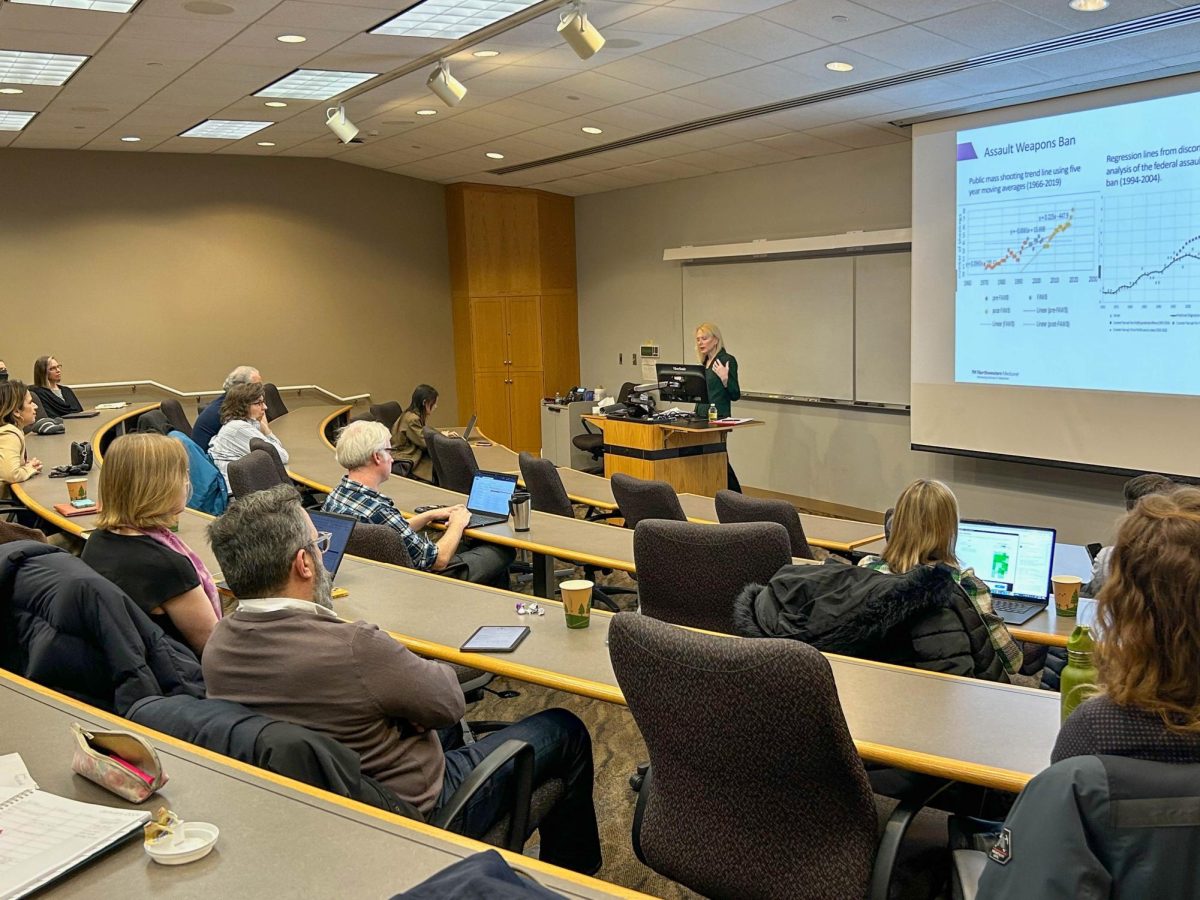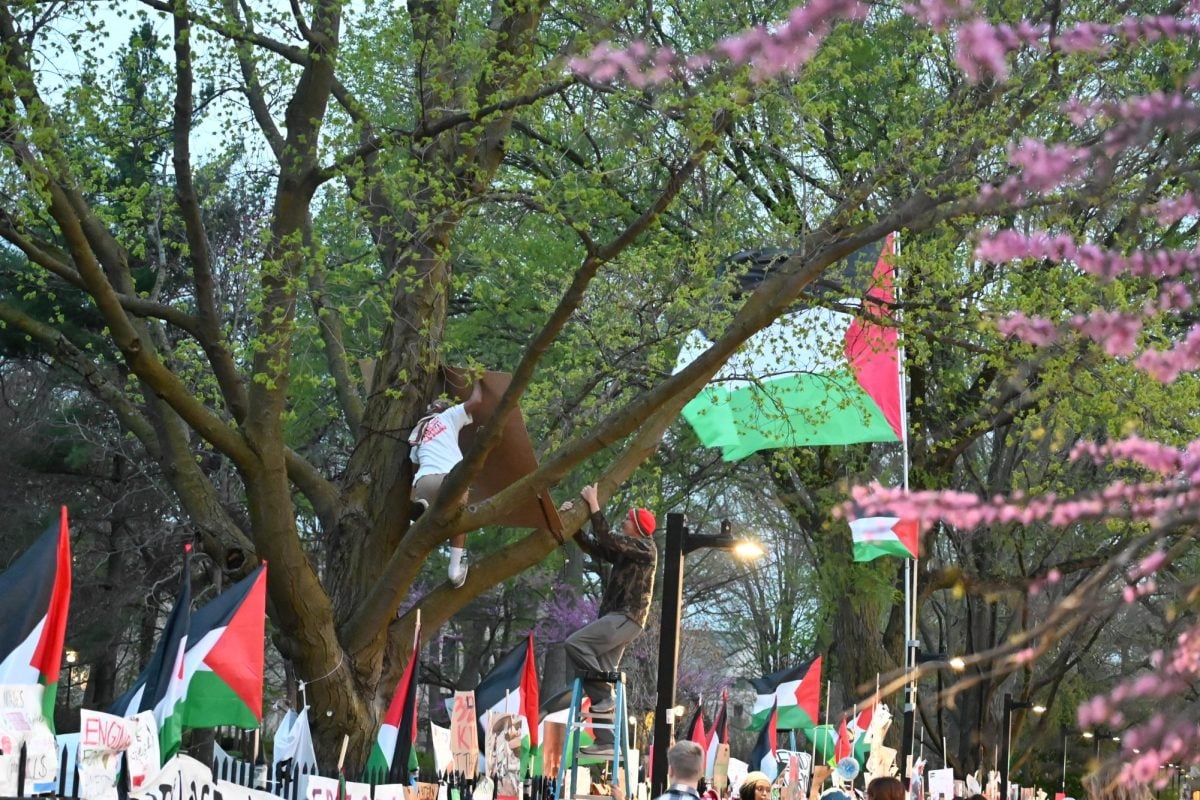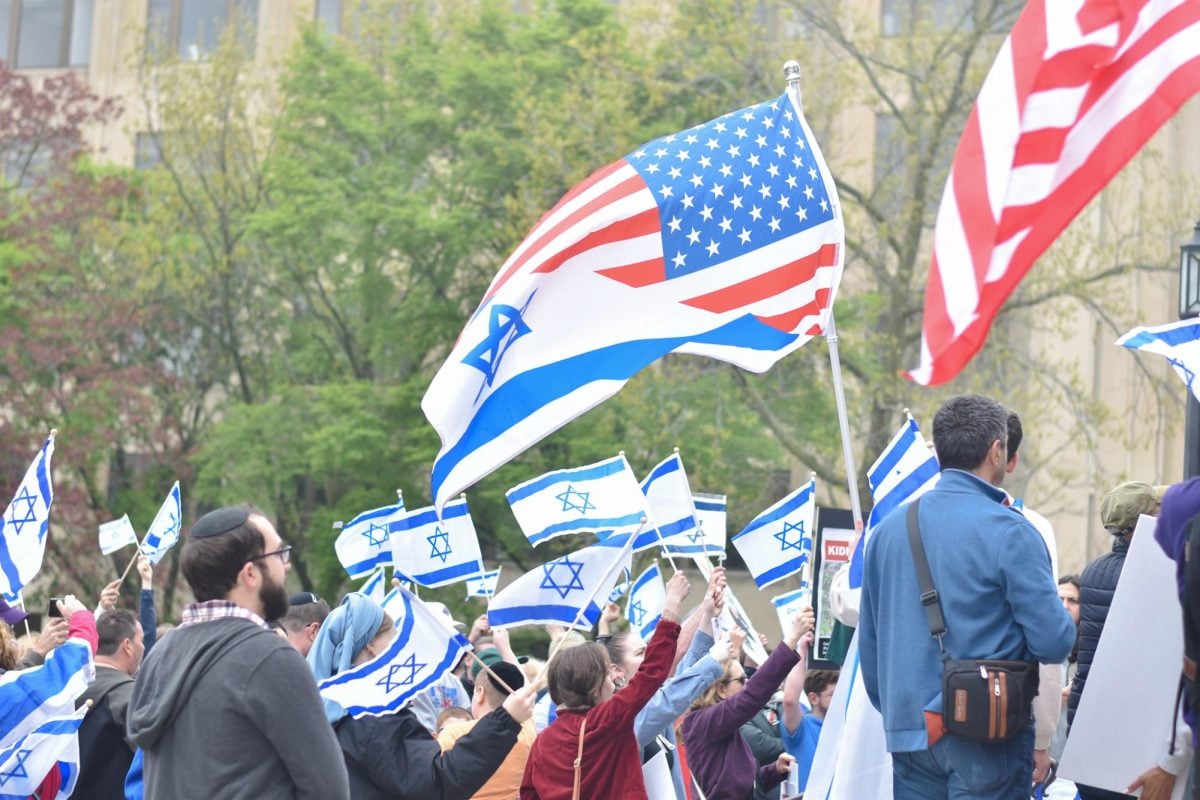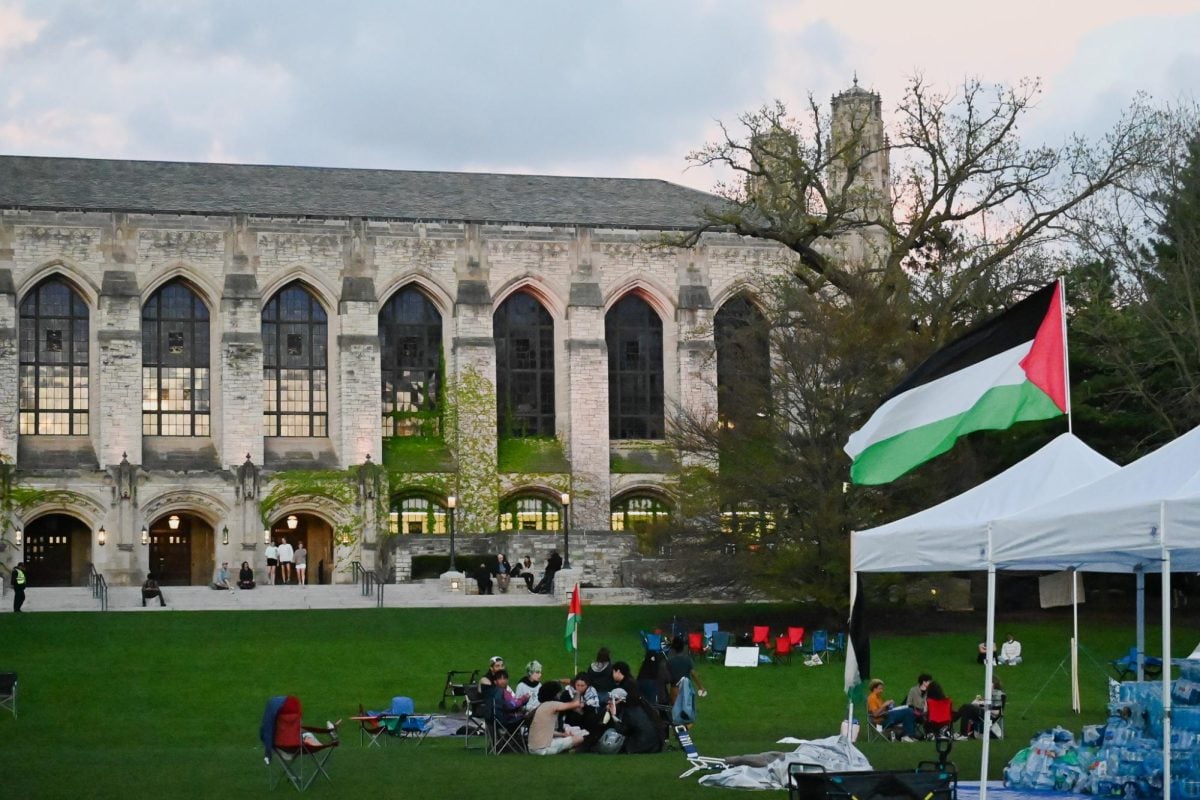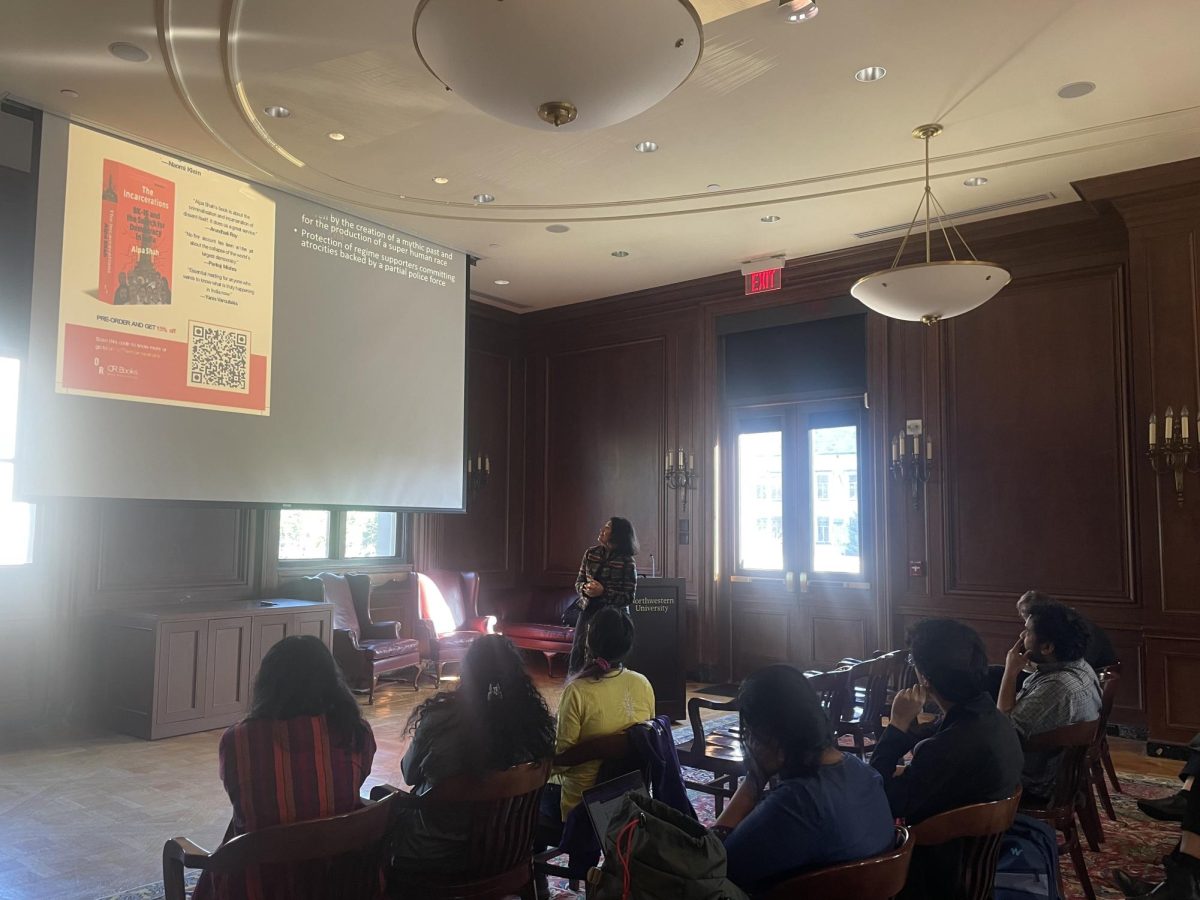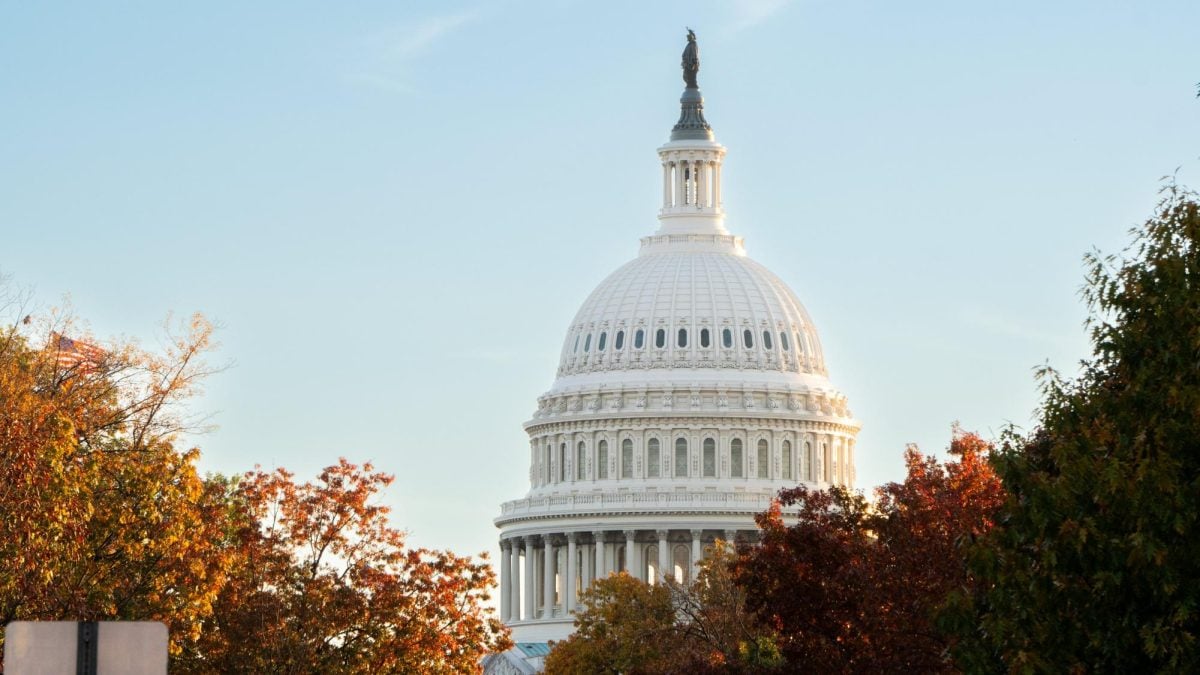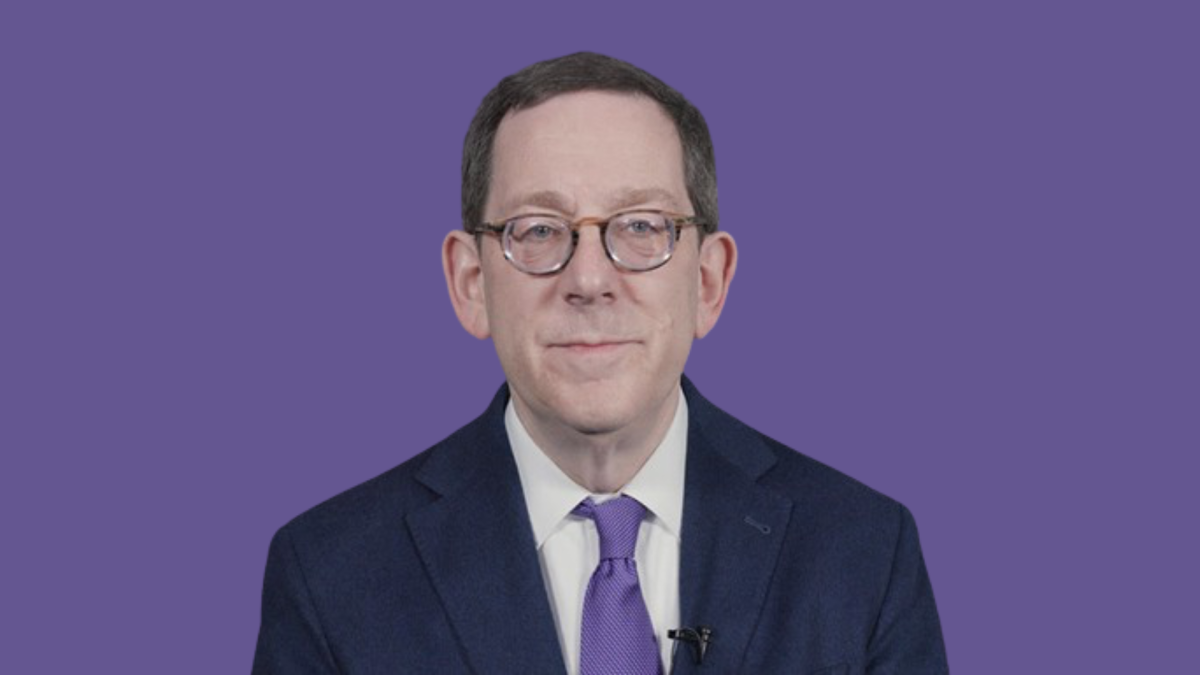Content Warning: This story contains discussions of gun violence and death.
Feinberg Prof. Lori Ann Post spoke Monday about her research analyzing statistics and characteristics of mass shootings in the Institute for Policy Research’s first colloquium of 2024.
Post’s talk focused on the way that varying definitions of mass shootings and the discrepancy between the perceived risk and the actual probability of dying in a mass shooting can impact research.
“It’s a very policy-relevant topic,” IPR Communications Coordinator Lily Schaffer said. “We try to really make sure we’re hitting policy-relevant topics in our talks.”
Currently, the U.S. has no clear legal definition of a mass shooting, according to Post. As a result, different databases measure mass shooting incidents based on different criteria.
In her research, Post defines a mass shooting as an event in which a perpetrator uses a firearm in a public space and kills at least four people.
However, some databases, such as the Gun Violence Archive, define it as an incident in which the perpetrator shoots at least four people, with no fatality requirement. Of the 656 mass shootings recorded by the GVA in 2023, only 6% meet the criteria of four fatalities.
“I do not mean to ignore the awful suffering that comes from gunshot wounds, but death is different,” Post said. “Conflating fatalities with injuries, some of which may be minor, can be terribly misleading.”
Changing the threshold for the number of fatalities that constitute a mass shooting can also affect the profile of perpetrators.
For instance, Post said research using the Secret Service’s data on mass attacks, defined as attacks in which three or more people are harmed, identified a 14% rate of psychosis symptoms in perpetrators in 2017, compared to under 3.5% of the general population. However, the Columbia University mass murder database, which only covers incidents in which four or more people are killed, found that just 5% of perpetrators who used firearms between 1900 and 2019 experienced acute psychosis.
“There’s a big digression from effective policies to prevent mass shootings to talking about mental health,” Post said. “Of course we have a mental health crisis going on in America, but it’s not related to mass shootings.”
IPR Fellow and Sociology Prof. Christine Percheski, who attended the talk, said Post’s findings could highlight potential policy solutions.
For instance, Post said her research estimated that the Federal Assault Weapons Ban prevented 11 public mass shootings while it was in place from 1994 to 2004. She said her study also predicts that a continuation of a Federal Assault Weapons Ban would have prevented 30 public mass shootings between 2005 and 2019.
Her research also revealed school shooters were more likely to have attended the school they targeted, which she said calls into question the effectiveness of school shooter response trainings.
“Dr. Post is doing very important research, showing us how uncommon mass killers or mass killing events are with four or more deaths, and how those (perpetrators) have really distinct characteristics,” Percheski said.
Email: [email protected]
X: @joyycee_li
Related Stories:
— Economics Prof. Silvia Vannutelli discusses the politician-to-lobbyist pipeline at IPR Colloquium
— Anthony Chen talks affirmative action at first Institute for Policy Research Colloquium

